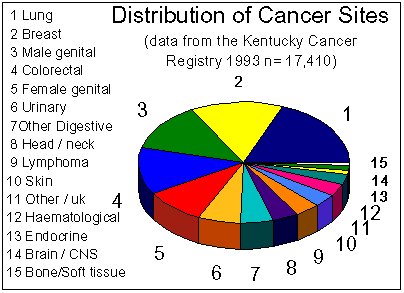Step towards blood test for many cancer types

|
Scientists have identified more than 800 markers in the blood of cancer patients that could help lead to a single blood test for early detection of many types of cancer in future, according to research presented at the National Cancer Research Institute (NCRI) Cancer Conference in Liverpool today (Sunday).
This is the first time that cancer-specific blood markers have been comprehensively reviewed and identified for further clinical development. This study, by the UK Early Cancer Detection Consortium*, funded by Cancer Research UK, has analysed 19,000 scientific papers and found more than 800 biomarkers.
The aim of this research is to develop a screening test from a single blood sample for multiple cancer types. All cancers produce markers in the blood, so it could be feasible to develop a general screening test for many different forms of the disease.
In the UK, survival rates for cancer are lower than in some other western countries, part of which may be related to late diagnosis. But developing more ways to spot cancers earlier, including research into new screening technologies such as this, could help give more options for curative treatment, and save more lives in the future.
In the UK, cancer is most often detected after patients present symptoms to their doctor, with a small proportion being detected through any of the three national screening programmes for breast, bowel, and cervical cancer. This study could open the way for less invasive, new screening tests that could detect more cancers, possibly including some rare types, at an early stage when they are more likely to be treatable.
Cancer Research UK is committed to early diagnosis of cancer, importantly reducing late diagnosis and improving patients’ chances of surviving long term.
Study author Professor Ian Cree, a Cancer Research UK funded scientist at the University of Warwick and University Hospital in Coventry, said: “This is a new approach to early detection and the first time such a systematic review has been done. A single blood-based screening test would be a game changer for early detection of cancer which could help make it a curable disease for many more patients. We believe that we’ve identified all the relevant biomarkers; the next step is working out which ones work the best for spotting cancers.”
The identified biomarkers will be reviewed and categorised before they are developed further in clinical laboratory studies.
Sara Hiom, Cancer Research UK’s director of early diagnosis, said: “This is an innovative and promising new approach. And although in its early stages, it shows how our increased understanding of cancers’ ‘markers’ and new technologies are combining to offer new opportunities to detect cancer sooner. Diagnosing cancer at an early stage generally means more effective treatment and that translates into better survival. Our goal over the next 20 years is that three in four cancer patients will survive at least ten years after their diagnosis.”
###
For media enquiries please contact Stephanie McClellan on 020 3469 5314 or, out-of-hours, the duty press officer on 07050 264 059.
Notes to editors: *The Early Cancer Detection Consortium unites expertise from various disciplines including more than 20 universities, hospitals and commercial partners.
About the NCRI
The National Cancer Research Institute (NCRI) is a UK-wide partnership between the government, charity and industry. Its role is to promote cooperation in cancer research.
NCRI Partners are: the Association of the British Pharmaceutical Industry (ABPI); Biotechnology and Biological Sciences Research Council; Breakthrough Breast Cancer; Breast Cancer Campaign; Cancer Research UK; Children with Cancer UK; Department of Health; Economic and Social Research Council; Leukaemia & Lymphoma Research; Ludwig Institute for Cancer Research; Macmillan Cancer Support; Marie Curie Cancer Care; Medical Research Council; Northern Ireland Health and Social Care (Research & Development Office); Prostate Cancer UK; Roy Castle Lung Cancer Foundation; Scottish Government Health and Social Care Directorates (Chief Scientist Office); Tenovus; Welsh Government (National Institute for Social Care and Health Research); Worldwide Cancer Research (formerly the Association for International Cancer Research); Wellcome Trust; and Yorkshire Cancer Research.
About the NCRI Cancer Conference
The National Cancer Research Institute (NCRI) Cancer Conference is the UK’s major forum for showcasing the best British and international cancer research.
The Conference offers unique opportunities for networking and sharing knowledge by bringing together world-leading experts from all cancer research disciplines.
The tenth NCRI Cancer Conference is taking place from 2–5 November 2014 at the BT Convention Centre in Liverpool.
About the NIHR
The National Institute for Health Research (NIHR) is funded by the Department of Health to improve the health and wealth of the nation through research. Since its establishment in April 2006, the NIHR has transformed research in the NHS. It has increased the volume of applied health research for the benefit of patients and the public, driven faster translation of basic science discoveries into tangible benefits for patients and the economy, and developed and supported the people who conduct and contribute to applied health research. The NIHR plays a key role in the Government’s strategy for economic growth, attracting investment by the life-sciences industries through its world-class infrastructure for health research. Together, the NIHR people, programmes, centres of excellence and systems represent the most integrated health research system in the world.
###
Stephanie McClellan
.(JavaScript must be enabled to view this email address)
44-020-346-95314
Cancer Research UK
Print Version
Tell-a-Friend comments powered by Disqus





